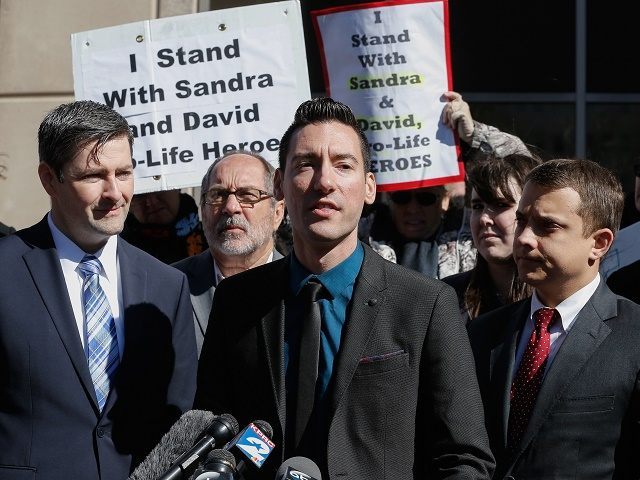California law long criminalized recording a person without their consent. This law has never before been applied to a journalist engaged in undercover reporting. It has now.
The California Attorney General just issued a criminal complaint against two anti-abortion documentary journalists for their undercover videos about Planned Parenthood activity concerning aborted baby parts. It may be the liberal Attorney General assumes his highly selective choice to only prosecute anti-abortion documentarians will allow journalists to turn a blind eye to the extraordinary application of this law to undercover reporting that is common-place in California.
Section 632 of the California Criminal code makes it a crime to “intentionally” and “without the consent of all parties” record a conversation if that conversation is a “confidential communication.” A conversation is, by law, not confidential if there is not a reasonable expectation it cannot be overheard. A conversation is, by law, not confidential if it concerns certain kinds of criminal conduct — colloquially known as the “extortion exemption” but also applicable to other crimes, such as violent crimes against a person.
Under clear California law, the First Amendment protects the publishing of any recording of public interest. Additionally, up until yesterday, it was assumed the First Amendment prevented criminal prosecution for news-gathering investigative undercover recordings in aid of First Amendment activity. A California court already recognized the activity of these two anti-abortion investigative journalists as First Amendment protected activity when denying an injunction against their publishing the results of the recordings.
As the California Supreme Court twice noted, while not imposing a complete press exception for the undercover recording law, section 632 “might, under some circumstances, impose an impermissible burden on news-gathering; and that such a burden might be found in a law that, as applied to the press, would result in a significant constriction of the flow of news to the public and thus eviscerate the freedom of the press.”
The court first noted “the First Amendment protects the ordinary news-gathering techniques of reporters and those techniques cannot be stripped of their constitutional shield by calling them tortious.” The court further noted “hidden cameras and miniature cordless and directional microphones are powerful investigative tools for news gathering” even if they threaten personal privacy. The court prioritized protection for those cases where the First Amendment motivation directed the undercover recording activity.
In particular, the court implied that where the reporting in question “depends on secretly recording” to obtain the news, then the First Amendment would preclude application of section 632’s criminal penalties. As the United States Supreme Court explicated: “without some protection for seeking out the news, freedom of the press would be eviscerated.”
To date, there has not been a single public complaint from the liberal press about this extraordinary criminalization of documentary reporting. Apparently, liberal media believes the First Amendment is their wholly owned monopoly, and when it comes to conservatives, the First Amendment need not apply. That puts everyone at risk.
Robert Barnes is a trial lawyer with high profile wins in constitutional, criminal, and civil law. You can follow him @Barnes_Law.

COMMENTS
Please let us know if you're having issues with commenting.